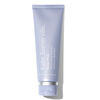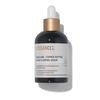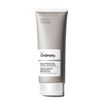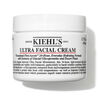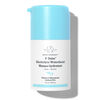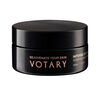BEST CLEANSERS FOR DEHYDRATED SKIN
Finding a cleanser that will quench skin’s thirst while helping to repair and protect the skin barrier is a must for dehydrated skin. Double cleansing is vital for all skin types if you wear SPF and makeup and spend a considerable time outside. Cream, oil and balm pre-cleansers will be your allies to dissolve makeup and grime before proceeding with your second cleanser.
BEST SERUMS FOR DEHYDRATED SKIN
Moisturisers are great for the upper layers of the skin – serums, however, deeply penetrate the skin for longer-term results. Whether you’re after the best hyaluronic acid serum or want to reap the benefits of a niacinamide treatment, choose lightweight formulas that work to restore and lock in hydration.
BEST MOISTURISERS FOR DEHYDRATED SKIN
When picking a dehydrated skin moisturiser, the aim is to find a formula that will restore hydration levels (in the short and long run) and the skin barrier. A dehydrated skin moisturiser with an oil or balm finish will do this – look out for the ingredients mentioned below, as well as lactic acid and squalane.
BEST HYDRATING FACE MASKS
If you’re after a quick burst of hydration, face masks are excellent hydrating skin products to make skin look instantly plump, dewy and revitalised. There are many sheet, liquid and gel masks that target dullness and dry skin; just avoid peel and exfoliating masks while you’re aiming to repair the skin barrier.
WHAT IS DEHYDRATED SKIN?
Dehydrated skin is the result of your skin and body lacking water. A dehydrated face equals dullness, noticeable skin texture such as fine lines and wrinkles and, in some cases, flakiness, irritation and itchiness. Unlike dry skin, a genetic skin type caused by a lack of natural oils, dehydrated skin is often a temporary condition that any skin type can suffer from, and which can be altered with the right dehydrated skin products and lifestyle changes.
WHAT CAUSES DEHYDRATED SKIN?
While lack of internal hydration is usually the main cause of a dehydrated face, it can also occur from a loss of fluids after a recent illness, an inadequate diet and climate factors (such as low winter temperatures). Depending on the severity, it may be worth seeking advice from a doctor to find suitable dehydrated skin products.
HOW TO TREAT DEHYDRATED SKIN?
Some simple yet key lifestyle habits, such as staying hydrated during and after exercising, drinking more water (eight glasses a day is the general rule of thumb) or eating water-rich fruit and vegetables, will make all the difference. That, and finding the right products for dehydrated skin to deliver the burst of hydration your complexion is craving.
BEST INGREDIENTS FOR DEHYDRATED SKIN
A FINAL NOTE ON DEHYDRATED SKIN
Remember that dehydrated skin is a temporary condition that can happen to essentially any skin type and can be solved with hydrating skincare. While dehydrated skin differs from dry skin (which is genetic), skincare for dehydrated skin will often work for dry skin too. The core products for dehydrated skin are cleansers, serums, moisturisers and SPF. Hold off from toners, resurfacing and exfoliating treatments until you’ve fully nurtured, nourished and repaired your skin barrier with hydrating skin products.


